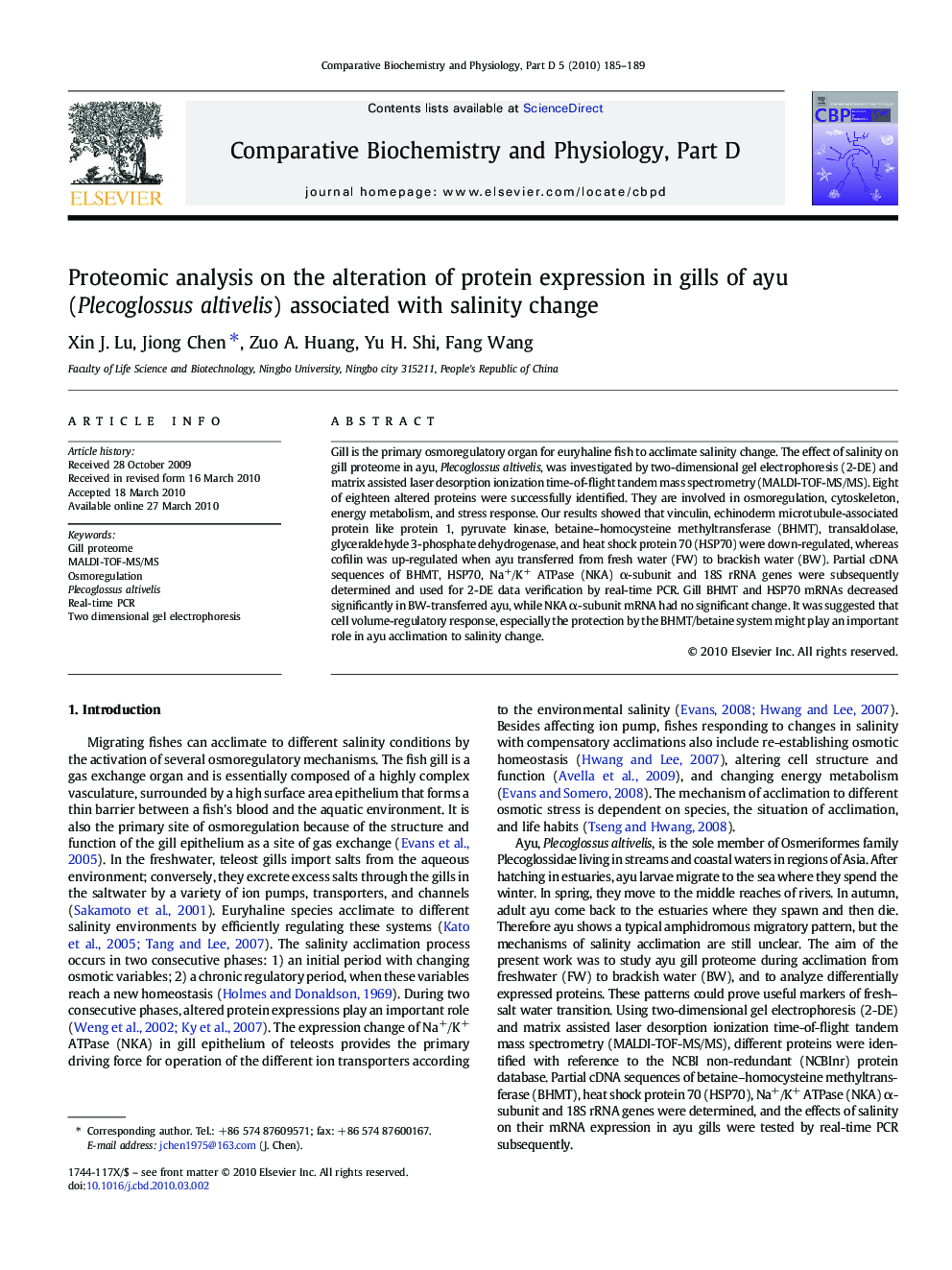| Article ID | Journal | Published Year | Pages | File Type |
|---|---|---|---|---|
| 1978616 | Comparative Biochemistry and Physiology Part D: Genomics and Proteomics | 2010 | 5 Pages |
Gill is the primary osmoregulatory organ for euryhaline fish to acclimate salinity change. The effect of salinity on gill proteome in ayu, Plecoglossus altivelis, was investigated by two-dimensional gel electrophoresis (2-DE) and matrix assisted laser desorption ionization time-of-flight tandem mass spectrometry (MALDI-TOF-MS/MS). Eight of eighteen altered proteins were successfully identified. They are involved in osmoregulation, cytoskeleton, energy metabolism, and stress response. Our results showed that vinculin, echinoderm microtubule-associated protein like protein 1, pyruvate kinase, betaine–homocysteine methyltransferase (BHMT), transaldolase, glyceraldehyde 3-phosphate dehydrogenase, and heat shock protein 70 (HSP70) were down-regulated, whereas cofilin was up-regulated when ayu transferred from fresh water (FW) to brackish water (BW). Partial cDNA sequences of BHMT, HSP70, Na+/K+ ATPase (NKA) α-subunit and 18S rRNA genes were subsequently determined and used for 2-DE data verification by real-time PCR. Gill BHMT and HSP70 mRNAs decreased significantly in BW-transferred ayu, while NKA α-subunit mRNA had no significant change. It was suggested that cell volume-regulatory response, especially the protection by the BHMT/betaine system might play an important role in ayu acclimation to salinity change.
